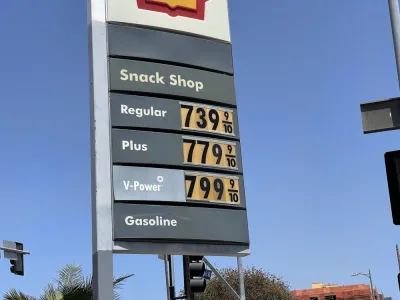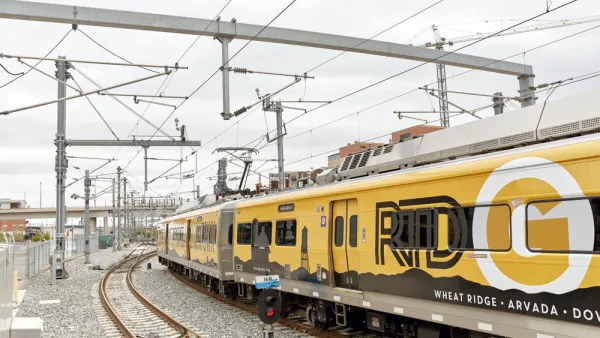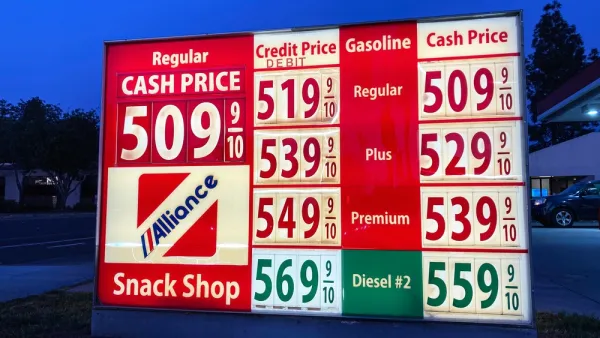Surveys and transit ridership both show some signs, with significant caveats, of the limits of the appetite for gasoline in Colorado.

While high gas prices have historically shown just how stubborn drivers can be, there is usually some reduction of driving when gas prices spike. With many people emerging back into their normal day-to-day routines and making up for lost time with road trips and vacations after two long years of pandemic restrictions, the current high gas prices are less likely to produce outcomes in line with precedent.
With the uncertainty of mobility in 2022 in mind, Matt Bloom recently dug into the mood and trends of drivers in Colorado, where the average gas price recently hit $4.62 per gallon—the highest ever recorded in the state and a 40 percent increase over last year.
“As a result, roughly 67 percent of drivers have started to drive less, according to a AAA survey of Colorado residents,” reports Bloom. “Pain at the pump has forced some people to readjust their vacation plans, rethink their work commutes and cut back on the amount they’re saving each month.”
For another key metric, albeit one that does not necessarily reflect a direct connection to gas prices, transit ridership is on the rise in the Denver area, although still well below pre-pandemic levels. “Public transit ridership in the Denver area has seen a slight increase in ridership over recent months, but it remains below pre-pandemic levels. Metro area residents took 4.8 million trips via bus or train in March — a 42 percent jump over the same time in 2021, according to RTD’s latest ridership figures,” reports Bloom.
Still, “the Colorado Department of Transportation and Denver International Airport both reported near pre-pandemic passenger numbers on roads and airplanes over the recent Memorial Day holiday,” according to Bloom, so drivers aren’t exactly abandoning their vehicles.
FULL STORY: Record gas prices force Coloradans to reevaluate commutes and summer travel plans

Analysis: Cybertruck Fatality Rate Far Exceeds That of Ford Pinto
The Tesla Cybertruck was recalled seven times last year.

National Parks Layoffs Will Cause Communities to Lose Billions
Thousands of essential park workers were laid off this week, just before the busy spring break season.

Retro-silient?: America’s First “Eco-burb,” The Woodlands Turns 50
A master-planned community north of Houston offers lessons on green infrastructure and resilient design, but falls short of its founder’s lofty affordability and walkability goals.

Test News Post 1
This is a summary

Analysis: Cybertruck Fatality Rate Far Exceeds That of Ford Pinto
The Tesla Cybertruck was recalled seven times last year.

Test News Headline 46
Test for the image on the front page.
Urban Design for Planners 1: Software Tools
This six-course series explores essential urban design concepts using open source software and equips planners with the tools they need to participate fully in the urban design process.
Planning for Universal Design
Learn the tools for implementing Universal Design in planning regulations.
EMC Planning Group, Inc.
Planetizen
Planetizen
Mpact (formerly Rail~Volution)
Great Falls Development Authority, Inc.
HUDs Office of Policy Development and Research
NYU Wagner Graduate School of Public Service




























